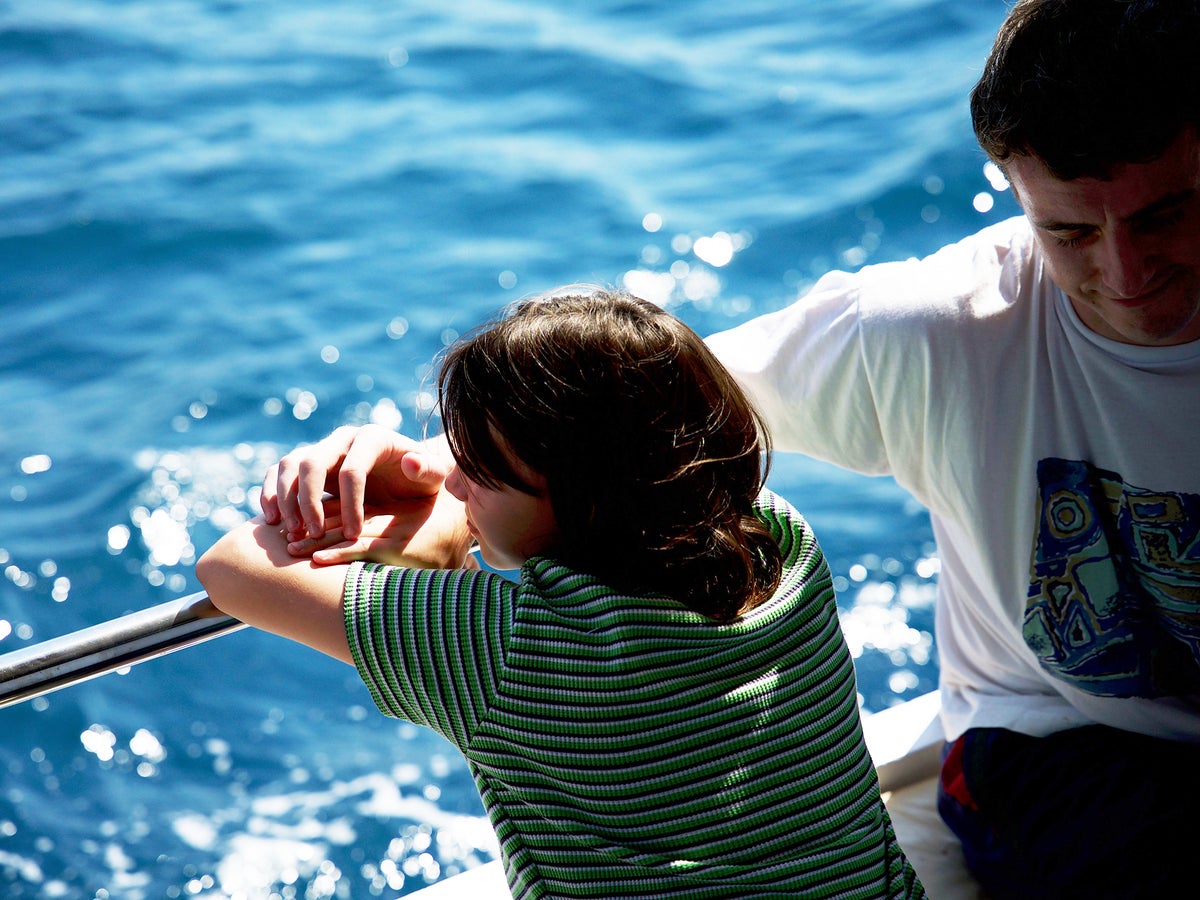
It’s difficult to think of the moments before a heartbreak and not lace them with omens. The mind, too often, moulds memories into prophecies. Colours get dialled up. Emotions solidify. It’s a hard thing to talk about, let alone visualise. That’s why Aftersun, the debut of Scottish filmmaker Charlotte Wells, is so astounding. She’s captured the uncapturable, finding the words and images to describe a feeling that always seems to sit just beyond our comprehension.
The only way to understand memory, in any meaningful way, is perhaps on personal terms. And here, Wells has siphoned some element of autobiography into a story of her own precise crafting. Eleven-year-old Sophie (Frankie Corio) is on holiday with her dad, Calum (Paul Mescal), at a point in the Nineties when the Macarena was at its cultural apex. It’s made clear that Calum isn’t with Sophie’s mother any more. He moved to England; they stayed in Scotland. This trip to Turkey, which Calum can barely afford, is a rare opportunity for father and daughter to be together.
Except we’re not watching these events as they were, but as they’re remembered – by an older Sophie (Celia Rowlson-Hall) under the strobe lights of a nightclub or a rave or, really, the chaotic confines of her own brain. We also see her play and replay an old VHS tape from the trip, trying to pinpoint some hidden truth that Aftersun, in a masterstroke move, never reveals. But this shared time between Sophie and Calum marked the end of… something. That much we know.
At one point, you can see the ghostly imprint of an adult Sophie in the television screen’s reflection. What terrible thing haunts her? Wells’s camera draws us gently towards the telltale signs of self-discovery. Sophie’s trip, on its surface, signalled the dwindling days of childhood naivety. Her fingers brush up against a boy’s at an arcade. She spies, through a bathroom keyhole, the gestures of an older girl as she details to her friends the handjob she gave the night before. Kids drift across each other’s paths, at pools and at play areas, finding a strange solidarity in the ritualistic nature of the package holiday.
Corio, here, movingly captures mute desperation. She shrinks down. She smiles small. It’s the hesitancy of a child who wants to show her dad that she loves him, but doesn’t quite know how. Wells draws a painful irony from the way Sophie is always in the act of documentation, snapping Polaroid photos and videoing Calum while she quizzes him. When he tells her he doesn’t want to be filmed, she says she’ll “record it in my little mind-camera” instead. But all the video footage in the world can’t give her the answers she needs. All we have to lean on is Calum’s offhand yet portentous remarks to other characters.
For all that Aftersun can be described as gentle, contemplative and even beautiful, it’s also the kind of film that feels as if it’s teetering on the edge of a cliff. Mescal’s Calum bears the same kind of broken-down charm of his Connell in Normal People, but there are moments of sudden detachment that feel especially heart-wrenching. If only Sophie could grab that head of his and shake it until all the secrets fell out. What is it, Calum? Where has your soul been bruised? Aftersun doesn’t let us know. It doesn’t let Sophie know, either. It leaves behind a deep feeling of want, and it’s one of the most powerful emotions you’ll find in any cinema this year.
Dir: Charlotte Wells. Starring: Paul Mescal, Frankie Corio, Celia Rowlson-Hall. 12A, 101 minutes.
‘Aftersun’ is in cinemas from 18 November







